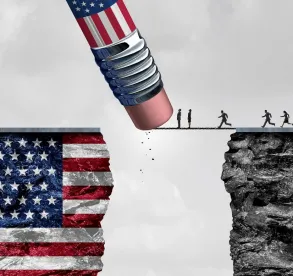The Trump Administration reportedly is considering a new rule that would make it easier for the government to deny visas to individuals on “public charge” grounds. This has drawn the criticism of many New York legislators.
The Administration may have been contemplating the move for a while. In January 2017, when the first travel ban was implemented, the Administration reportedly had been working on a draft executive order meant to fulfill some of President Donald Trump’s campaign promises based on the assumption that “households headed by aliens (legal and illegal) are much more likely than households headed by native-born citizens to use federal means-tested public benefits.” That executive order was never signed and never formally released.
More than 70 New York State legislators, headed by Assemblyman Andrew D. Hevesi, sent a letter to Trump on June 8, 2018, opposing the proposed rule because they would “fundamentally and negatively alter who we are as a nation, directly threaten the health and well-being of millions of New Yorkers, and impose a significant economic burden on [New York].”
Under current regulations, the government may deny individuals seeking visas or permanent resident status if they likely will become “primarily dependent on the government for subsistence, as demonstrated by either the receipt of public cash assistance for income maintenance, or institutionalization for long-term care at government expense.” That cash assistance includes Supplemental Security Income (SSI), Temporary Assistance for Needy Families (TANF), and state or local cash assistance programs known as “general assistance.” However, according to the USCIS Fact Sheet, simple receipt of those benefits does not necessarily lead to a public charge determination. “Each determination is made on a case-by-case basis in the context of the totality of the circumstances.” USCIS would not consider many government programs, including Medicaid, Children’s Health Insurance Program (CHIP), housing benefits, and unemployment compensation, among many others, in making public charge determinations.
Reportedly, under the proposed changes, programs not previously considered in making a public charge determination will be considered, including:
-
Certain health care subsidies
-
Some educational benefits, including Head Start
-
Affordable Care Act subsidies
-
Food Stamps, now known as Supplemental Nutrition Assistance Program (SNAP)
-
Women, Infants and Children assistance (WIC)
-
CHIP
-
Certain housing benefits
-
Transit vouchers
The New York legislators noted that immigrants, including those with U.S. citizen children, might stop enrolling in healthcare programs to preserve their ability to obtain immigration benefits. “It is not difficult to imagine the dire outcome for New York of hundreds of thousands of children disenrolling from health insurance benefits,” they observed.
The proposal has not yet been approved by Secretary of Homeland Security, Kirstjen Nielsen. The New York legislators have urged the Administration “to reject outright this ill-advised change in policy and recognize that this nation is not strong in spite of immigration; it is strong because of immigration.” States with large immigrant populations (such as New York and California) would be particularly affected by any change.
A Migration Policy Institute study found that almost half of noncitizens legally in the U.S. could be affected by the proposed rule – only three percent are affected by the current rule. Moreover, studies have shown that native-born Americans use public benefits at roughly the same rate as the foreign-born population.




 />i
/>i

